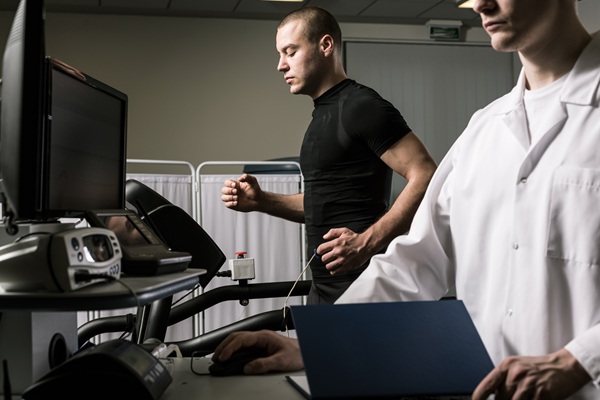Health Conditions That a Heart Specialist Can Treat

Wondering if a heart specialist can treat your health condition? Heart specialists are also called cardiologists. These highly trained medical professionals focus on diagnosing and treating problems related to the heart and blood vessels.
When to see a cardiologist
Thinking about seeing a heart specialist to address your particular health condition? Even though a primary care physician is often the type of medical professional who manages and oversees a patient's health conditions, sometimes it is necessary for patients to be under the care of a cardiologist. Primary care physicians will often refer their patients to a cardiologist when they have been diagnosed with heart disease or if it is determined that they or at a higher risk of developing heart-related problems.
There are many different types of heart specialists, and it is necessary for patients to see the one who can effectively treat their health condition. Examples of different types of cardiologists include clinical cardiologists, interventional cardiologists, congenital heart specialists and preventive cardiologists. The list below includes three of the more common types of health conditions for which heart specialists treat their patients.
Health conditions that cardiologists can treat
High blood pressure
High blood pressure, also known as hypertension, is a health condition that often does not exhibit any noticeable signs for many years. This means many people who are living with high blood pressure may not even know they have it even though this condition is capable of harming the body in several different ways. For example, high blood pressure can lead to coronary artery disease, kidney failure, stroke or heart attack. Lifestyle changes and medications are used to treat high blood pressure.
High cholesterol
High cholesterol is a health condition caused by an increase of fats, also called lipids, in blood. When fats begin to build up in one's arteries, it creates a large amount of plaque to build up on the artery walls. Over time, this plaque will start to reduce the oxygen supply delivered to one's heart. High cholesterol increases one's risk of stroke, heart attack and peripheral vascular disease, which makes high cholesterol treatment necessary.
Diabetes
Diabetes is a health condition that can put one's cardiovascular system at great risk. A cardiologist is a type of doctor who does not simply write prescription medications but instead will focus on educating the patient about their diabetes diagnosis. They also focus on using other types of interventions in order to help those diagnosed with this all too common health condition; other treatments include lowering their lipids and beginning antiplatelet therapy. Many cardiologists who have patients with diabetes will work with other doctors and create a team of medical professionals to assist patients.
Bottom line
While a cardiologist is a heart specialist who focuses on treating problems related to one's heart and blood vessels, they can also address other health conditions. This is because many health conditions have the potential to negatively affect the heart. Such conditions include high blood pressure, high cholesterol and diabetes. For those who have questions on whether or not they need to see a cardiologist, additional information is only a phone call away.
Request an appointment here: https://boyntonbeach.floridapremiercardio.com or call Florida Premier Cardiology at (561) 229-1411 for an appointment in our Boynton Beach office.
Check out what others are saying about our services on Yelp: Heart Specialist in Boynton Beach, FL.
Recent Posts
A cardiac stress test is a diagnostic tool to evaluate how well the heart performs under physical stress. Cardiologists use this test to detect underlying cardiovascular conditions, monitor treatment progress, or assess the risk of future heart complications. Cardiac stress tests are essential in the early detection and management of heart disease.A cardiac stress test…
Peripheral arterial disease affects blood flow in the arteries, most commonly in the legs. It develops due to plaque buildup in the arteries that causes them to narrow and restrict circulation, possibly leading to discomfort, difficulty walking, and other serious complications. Recognizing the symptoms early and exploring treatment options can help improve the quality of…
Receiving cardiovascular treatment is a critical step in managing heart health, but recovery and long-term are equally vital to ensure long-term wellness. Whether the treatment involves medication management, interventional procedures, or surgery, maintaining a relationship with the cardiologist and following their recovery guidelines is crucial. A structured follow-up plan allows patients to maintain the benefits…
An echocardiogram is a common and painless test that helps doctors evaluate heart health. This test uses sound waves to create images of the heart, allowing cardiologists to examine its structure and function. Many people feel nervous before a medical test, but understanding what to expect can help reduce stress.An echocardiogram is a diagnostic test…


